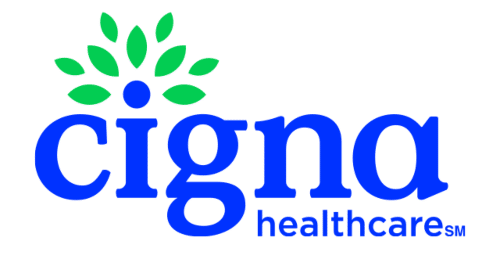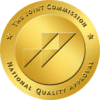The path to overcoming drug addiction and substance abuse is one filled with numerous hurdles, and among these, the possibility of relapse stands out as particularly challenging. According to a 2014 study, Between 40 to 60 percent of people who’ve been treated for addiction or alcoholism relapse within a year. The relapse cycle—a concept crucial for both those battling addiction and their support networks to grasp—refers to the process an individual undergoes leading to the resumption of substance use after a period of abstinence. Recognizing the signs and stages of this cycle is the first step towards preempting a return to old habits, making an understanding of the cycle essential to the recovery process.
Awareness of the relapse cycle is not just about prevention; it’s about empowerment. By understanding relapse and the nuances of each stage, individuals in recovery from substance use disorders can develop personalized strategies and coping skills to navigate their way through the complexities of addiction, armed with the knowledge to intervene before a slip becomes a fall. This recognition also fosters a compassionate environment where setbacks are seen as opportunities for growth rather than failures.
The Stages of the Relapse Cycle
Understanding the stages of the relapse cycle is crucial for individuals striving to maintain sobriety, as well as for their support networks. This knowledge empowers those affected by addiction to recognize early warning signs and implement effective strategies to prevent relapse. The cycle of relapse can be broken down into three distinct stages: emotional relapse, mental relapse, and physical relapse.
Emotional Relapse
Before the thought of using substances even enters the mind, the groundwork for relapse might already be laid through emotional distress. Symptoms of emotional relapse are subtle and can easily be overlooked or dismissed as unrelated to recovery. These symptoms include anxiety, irritability, not attending meetings, poor eating and sleeping habits, and isolation. The key to prevention at this stage lies in self-care: maintaining a healthy lifestyle, seeking emotional support, and engaging in activities that reduce stress.
Mental Relapse
As the name suggests, mental relapse is a war waged in the mind. It’s characterized by a growing internal conflict between the desire to use and the desire to remain sober. Early signs include reminiscing about past drug use, glamorizing those memories, and bargaining. This stage may also involve lying to others about one’s feelings and thoughts about using, as well as planning potential relapse scenarios. Strengthening one’s mental resilience through mindfulness, therapy, and peer support is crucial to overcoming this stage.
Physical Relapse
This stage is the culmination of the relapse process, where the individual actively seeks out and uses the substance. It’s a critical point that underscores the importance of early intervention. Once physical relapse occurs, it can feel like all progress has been lost, but it’s important to remember that recovery is a journey with potential bumps along the way.
Factors Contributing to the Relapse Cycle
External Triggers
External triggers can be anything from people and places to specific situations that remind an individual of their substance use. Recognizing these triggers is a fundamental step in relapse prevention. Strategies to manage external triggers include avoiding known triggers, changing one’s routines, and developing healthy responses to unavoidable triggers.
Internal Triggers
Internal triggers are emotional or psychological states that can prompt cravings for substances. These might include feelings of loneliness, frustration, or boredom. Building a strong emotional foundation through therapy, mindfulness practices, and emotional regulation strategies is key to managing these triggers.
Co-occurring Disorders
Many individuals with addiction issues also struggle with co-occurring mental health disorders, such as depression or anxiety. These disorders can intensify the relapse cycle, making integrated treatment approaches that address both the addiction and the co-occurring disorder essential for a successful recovery.
Breaking the Cycle
Overcoming the relapse cycle is a multifaceted endeavor that requires commitment, understanding, and well-rounded relapse prevention strategies. Breaking free from this cycle is not solely about avoiding substance use; it’s about creating a sustainable lifestyle that supports long-term recovery and personal growth. Below are comprehensive strategies to break the relapse cycle effectively:
Developing a Strong Support Network
A robust support network is the cornerstone of successful recovery. This network can include family, friends, recovery groups, and healthcare professionals who provide emotional support, understanding, and accountability. Engaging in regular meetings with support groups such as Alcoholics Anonymous (AA) or Narcotics Anonymous (NA) offers a sense of community and shared experience that can be incredibly reassuring. Additionally, forming connections with individuals who have successfully navigated their recovery journey can offer hope and practical advice on overcoming challenges.
Engaging in Therapy or Counseling
Professional therapy or counseling plays a critical role in addressing the underlying issues that contribute to addiction. Cognitive Behavioral Therapy (CBT), Dialectical Behavior Therapy (DBT), and other therapeutic approaches can help individuals develop healthier coping mechanisms, improve emotional regulation, and work through trauma or psychological issues that may be at the root of their addiction. Regular sessions with a therapist or counselor provide a safe space to explore personal triggers, work through emotions, and develop strategies to manage stress and prevent relapse.
Professional Help and Rehabilitation
For many, professional rehabilitation programs offer the structure and intensive care necessary to break the cycle of addiction. These programs can provide medical detoxification, individual and group therapy, and education on addiction and relapse prevention. Rehabilitation centers like Safe and Sound Treatment, often offer customized treatment plans that cater to the unique needs of each individual, incorporating holistic therapies, skill-building activities, and relapse prevention education to support recovery.
Lifestyle Changes and Self-Care
Adopting a healthy lifestyle is essential for maintaining sobriety and overall well-being. This includes regular physical activity, a nutritious diet, adequate sleep, and engaging in hobbies or activities that bring joy and fulfillment. Self-care practices such as meditation, yoga, and mindfulness can also enhance emotional well-being and resilience, providing tools to manage stress and reduce the risk of relapse.
Continuous Education and Awareness
Education about addiction and the relapse cycle empowers individuals with the knowledge to recognize warning signs and take proactive steps to maintain their recovery. Participating in workshops, seminars, or online courses on addiction recovery can provide valuable insights and strategies for dealing with challenges and preventing relapse. Awareness and education also help in reducing the stigma associated with addiction, fostering a more supportive and understanding environment.
Building a New Life
Ultimately, breaking the relapse cycle is about more than just avoiding substances; it’s about building a new, fulfilling life where substance use no longer serves a purpose. This can involve setting new goals, pursuing interests and passions, and building relationships that support a healthy lifestyle. The journey of recovery is an opportunity for growth, learning, and transformation, leading to a richer, more rewarding life.
Overcoming the Relapse Cycle
Breaking the relapse cycle is a comprehensive process that involves more than just the individual in recovery; it requires a supportive network, professional guidance, and significant lifestyle changes. By understanding the stages of the relapse cycle and implementing strategies to address each aspect, individuals can navigate their recovery with confidence. The journey may be challenging, but with the right tools and support, achieving a fulfilling life free from addiction is entirely possible.
If you or a loved one are stuck in the cycle of addiction, get in touch with Safe and Sound Treatment. Our drug rehab facility is dedicated to providing individuals with an encouraging environment to recover from addiction.
FAQs
Signs of emotional relapse include increased anxiety, mood swings, and withdrawal from support networks, signaling the need for immediate self-care and support.
Yes, a single instance of substance use is considered a relapse but it’s important to view it as a step in the learning process rather than a complete failure.
Being a consistent source of emotional support, encouraging active participation in recovery activities, and helping to identify and manage potential triggers can be invaluable.
Relapse rates for addiction are significant, but they should be viewed in the context of addiction being a chronic illness, similar to how relapses can occur in other chronic conditions.
Relapse can be part of the recovery journey for some, offering insights into personal triggers and the effectiveness of coping strategies, thereby informing future prevention efforts.


















